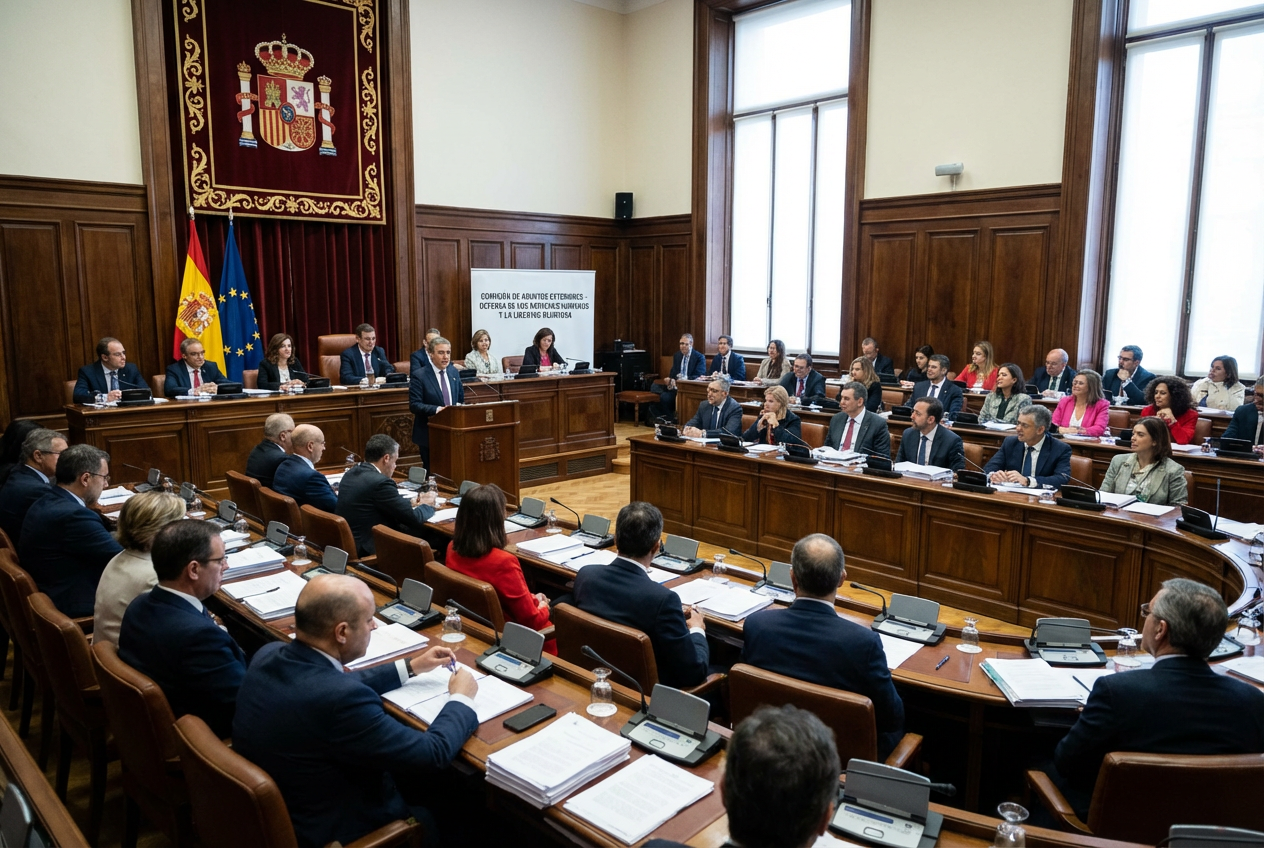Faith
Choir’s Milestone Performance Inspires Global Unity

In a world that often feels divided and uncertain, the power of music to unite and inspire is something to celebrate. This past Sunday, the Tabernacle Choir at Temple Square reached an extraordinary milestone, performing the 5,000th episode of the esteemed “Music & the Spoken Word” program. This achievement is a testament not only to the choir’s dedication but also to the enduring spirit of faith and community that has been a cornerstone of American life for nearly a century.
The program, which first aired on July 15, 1929, has become a beacon of hope and perseverance, weathering the storms of history from the Great Depression to the COVID-19 pandemic. As Heidi Swinton, a choir volunteer, eloquently put it, the choir serves as “a voice that says, ‘We can do this. We can get through this.’” This message resonates deeply with those who value the principles of faith, family, and freedom.
The choir’s ability to uplift and comfort is perhaps why President Ronald Reagan once dubbed it “America’s Choir.” Its longevity and steadfast presence have made it a symbol of resilience and unity, encouraging listeners to “lock arms and we’ll get through this.” In times of trial, the choir has provided a soundtrack of hope, reminding us of the strength found in community and shared values.
Warna Huff, a 101-year-old listener, recalls the impact of the first broadcast she heard as a child. “It was something you don’t forget,” she shared. “It just makes you feel something that you need. The music’s beautiful.” Her words echo the sentiments of many who find solace and inspiration in the program’s harmonious blend of music and message.
Russell M. Nelson, president of the LDS Church, also reflected on the program’s significance in his life, stating, “I cannot remember life without ‘Music & the Spoken Word.’” His recollection underscores the program’s role in shaping the moral and cultural fabric of our nation, offering a weekly reminder of the values that bind us together.
The Church of Jesus Christ of Latter-day Saints described the 5,000th performance as an “unprecedented achievement [that] underscores the weekly program’s enduring legacy and its profound global impact.” Indeed, the reach of “Music & the Spoken Word” extends far beyond its origins, touching the hearts of over 6 million listeners each week.
“Music is the universal language of the Spirit,” Nelson noted. “Music communicates to the heart and soul of individuals in a way that written words cannot duplicate.” This truth is evident in the choir’s ability to transcend barriers and connect with audiences worldwide, reinforcing the timeless values of faith, hope, and love.
As we reflect on this remarkable milestone, let us remember the importance of nurturing our spiritual and cultural heritage. In a rapidly changing world, the enduring legacy of “Music & the Spoken Word” serves as a powerful reminder of the strength found in faith and the unifying power of music. May we continue to cherish and uphold the values that have guided us through generations, ensuring a future where faith and freedom flourish.
Let us know what you think, please share your thoughts in the comments below.
Faith
Spain Bolsters Shield for Persecuted Christians

Faith Facts
- Open Doors World Watch List 2026 reveals 388 million Christians endure high, very high, or extreme persecution and discrimination daily.
- Initiative addresses not just violence but daily barriers to jobs, education, and justice, turning believers into second-class citizens in many nations.
- Approved by a narrow margin despite leftist opposition, urging stronger EU, Council of Europe, and UN action against faith-based massacres.
Spain’s Congress Foreign Affairs Committee has approved a conservative Popular Party initiative to fortify protections for persecuted Christians worldwide, echoing biblical calls to defend the faith amid rising global threats.
MP Maribel Sánchez highlighted religious freedom as a core human right, enshrined in Article 18 of the Universal Declaration of Human Rights, serving as a vital measure of true democracy rooted in God’s design for human dignity.
“These are not isolated incidents”
declared Sánchez, but a
“structural pattern”
fueled by authoritarian regimes and wars eroding God-given freedoms.
PSOE’s socialist spokesperson accused conservatives of Islamophobia.
Vox and even some leftists affirmed the urgent need to safeguard vulnerable Christian minorities from kidnappings, assaults, and jihadist terror, upholding Judeo-Christian values.
“It’s not that everyone is being persecuted all the time, but they live in a context where they are vulnerable and their rights are limited in their daily lives”
notes Open Doors Spain director Ted Blake.
Stand with our persecuted brethren through prayer and advocacy—defend faith, family, and freedom as patriots rooted in Scripture.
Faith
Gospel Surges in Iran After Tyrant’s Fall

Faith Facts
- Pray for restraint from leaders to avert wider war, protecting vulnerable children, pregnant women, elderly, and sick as in Psalm 91.
- Pray against regime hardliners, civil war, or military dictatorship, for just rulers granting freedom, dignity, and faith choice without fear.
- Praise God for Iran’s tested Church, serving with Christ’s love; even post-massacres, seekers turn to Jesus through believers’ compassion.
Iran’s Supreme Leader Ali Khamenei, architect of decades of repression including Christian persecution and massacres, was killed in US-Israeli strikes.
Despite ongoing chaos, Iranians show unprecedented openness to Christ, with the underground Church growing amid crisis.
“The underground Church in Iran has been tested through persecution, conflict, and economic crisis,” says David Yeghnazar of Elam Ministries.
“And through it all, by God’s grace, the Church has continued to grow. Even after the January massacres, people were turning to Christ as believers reached out with compassion.”
“Regardless of the direction in which things now develop politically, we are in a season of unprecedented openness to the gospel among Iranians.”
Join global Christians in fervent prayer for peace, God-fearing leaders, and bold Gospel witness to light Iran’s darkness as in Isaiah 60:1.
Faith
Why Greens Reject Biblical Values

Faith Facts
- Greens push decriminalization of all drugs, including cocaine and date-rape drug GHB, ignoring how chemical self-destruction harms the body made in God’s image, as seen in Seattle’s fentanyl crisis.
- Party backs abortion up to birth and assisted suicide, devaluing vulnerable life contrary to God’s command to protect the sanctity of every human from conception.
- Supports self-ID for gender transitions and puberty blockers for children, undermining God’s design for male and female while expelling members affirming biological reality.
Hannah Spencer’s Green Party by-election win signals a shift toward ideologically driven politics in Britain, drawing disillusioned voters with environmental stewardship that echoes biblical care for creation.
Yet beneath this appeal lies opposition to Christian principles on human dignity, life, and freedom.
Christians must reject such policies and support parties upholding faith, family, and freedom of conscience in Britain’s Parliament.
-

 Self-Reliance11 months ago
Self-Reliance11 months agoTrump’s Bold Move Uncovers Massive Social Security Fraud
-

 News12 months ago
News12 months agoGovernor Walz’s Rhetoric Sparks National Controversy
-

 Faith11 months ago
Faith11 months agoNew Clues Emerge in Noah’s Ark Mystery
-

 Family12 months ago
Family12 months agoTexas Lawmaker Targets Furries in Schools
-

 News11 months ago
News11 months agoMel Gibson’s ‘The Passion of the Christ’ Sequel Title Announced
-

 Freedom12 months ago
Freedom12 months agoMaine Lawmaker Challenges Sports Fairness Controversy
-

 Family9 months ago
Family9 months agoCanada’s Controversial Policy Sparks Ethical Debate
-
Faith3 months ago
Congress Hears Pleas for Nigerian Christians




